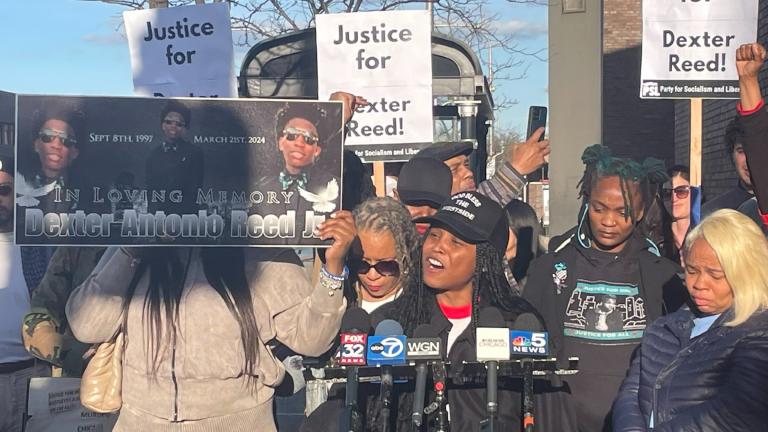Bronzeville native and former trauma surgeon Dr. William Yates has made public safety through technology his business. His company, Yates Protect, started out developing metal detectors and scanning equipment in order to prevent gun violence. Now, Yates has pivoted to developing non-contact thermal scanners to protect against the spread of the coronavirus in schools, businesses and even Chicago’s City Hall.
Yates says his experience as a trauma surgeon led him to pursue trauma-prevention measures like metal detectors.
“As a trauma surgeon, you repair people and prevent trauma. You’re doing a lot of work on the back end. I was more concerned on the front end in actually preventing and deterring violence. And I always thought that in an airplane terminal, no one gets shot – there’s a reason for that, because there’s a metal detector, there’s an X-ray machine,” Yates said.
Yates says he thinks metal detectors should be used in all public buildings to prevent gun violence. “They should be in every school, every government building, they should be everywhere,” he said.
Yates dismisses as overblown some parents’ concerns that metal detectors in schools create a prison-like atmosphere.
“The kids have never seen a prison, so they don’t even have a benchmark that going through a metal detector means anything about a prison,” he said. “That’s totally the parents’ bias.”
As the coronavirus pandemic was just beginning to become a stateside concern at the end of 2019, Yates’ company pivoted to developing no-contact temperature scanners that check for fever in individuals entering public places. Chicago’s City Hall has 10 thermal readers installed, and the Harold Washington Library has also installed Yates’ scanners.
Though he admits that it’s not a foolproof method of determining COVID-19 infections, he believes it’s a helpful way to screen out those exhibiting symptoms – and he thinks that the technology could be used even after COVID-19 has been controlled.
“Just infectious disease alone, including the flu, cuts down a number of working days. Anybody going to work should not have a fever,” Yates said. “After the coronavirus, with the coronavirus, if you have a fever, you stay home.”








